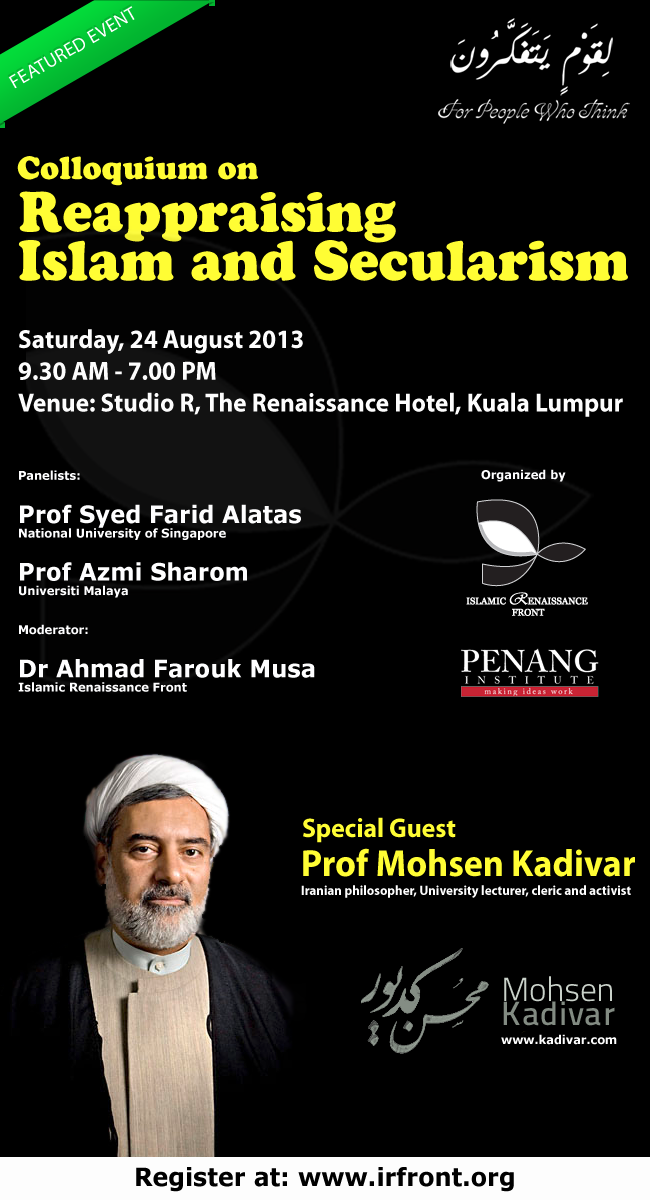
Date : Saturday, August 24, 2013
Time: 9:00 AM to 7:00 PM (MYT)
Venue : Studio R, The Renaissance Hotel, Kuala Lumpur
Registration: http://islamandsecularism.eventbrite.com/
Secularism has always been thought to be antithetical to Islam. However if one was to look back at history, secularism has played an integral part in shaping classical Islamic thought. The idea has been frequently discussed and debated, in various disguises, by many Muslim scholars and thinkers.
The movement to separate religion from politics began early in Islamic history. Known as the Muktazilites – literally the Separatists – these thinkers were against strict legalistic faith based solely on the notion of divine law or Shariah and work to transform Islam into a more humanistic religion.
They argued that with reason alone one could know how to act morally; and ipso facto there was no necessity to combine religion and statecraft. History has it that the Muktazilites were pitted against the Asharites and it was the victory of the Asharites that has led Muslim societies to see religion and politics as two sides of the same coin.
Things turned to worse when secularism in the Muslim world was always presented as an ideology in direct opposition to Islam and to equate secularism with Europeanization. And if Muslims now were to accept secularism, both secularism and religion have to be reformulated. Extra religious concerns such as democracy, human rights and pluralism should take precedence over intra-religious concerns such as the role of religious scholars and notions of religious truths.
The rights of God should be left to the individual and his conscience; the state should concern itself only with the rights of the people. So that secularism will emerge not at the expense of religion but as a method for reinterpreting and revisiting religion itself.

